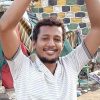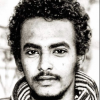our Governance
SUDTT is a registered volunteer-led non-profit professional organisation with registration no. 8811. SUDTT is regulated by the Laws of Sudan [in specific Humanitarian Aid Commission (HAC) Laws].
SUDTT Organizational Structure
SUDTT has the following organizational structure in operation:
This represents SUDTT registered membership base locally and internationally. The rules governing the GA membership, roles and responsibilities are indicated in Articles 4 of SUDTT Bylaws.
The five-person Board of Directors is composed of Chairman, Deputy Chairwoman and three elected board members. The remit of the BoD is indicated in Articles 5 of SUDTT Bylaws.
The elected main Executive Officers (CEO, General Secretary and Finance Secretary). These main officers are supported by additional seven elected Executive Officers who are staffing SUDTT Executive Offices. The remit of the EXO is indicated in Articles 6 of SUDTT Bylaws.
These are highly technical and professional focus groups whose remit is to derive SUDTT areas of expertise. The members of the focus groups are also members of SUDTT. The remit of the Focus Groups is indicated in Articles 7 and 8 of SUDTT Bylaws.
Legal and Operational Framework
Part of SUDTT System of Governance; SUDTT operates under the following legal framework and enacts operational processes as follows:
-
Legal Framework covering:
-
-
HAC Laws.
- SUDTT Bylaws (internal).
-
-
-
Operational Processes covering:
-
- Planning and Business Development Process.
- Technical (Project) Process.
- Financial Management Policy Guideline and Process.
- Communication Guidelines.
-

Professor Robert Brown
“At the heart of Tuti resident’s collective action is the Sudanese cultural tradition of Nafir and a spriti of solidarity an generosity towards others. What is also remarkable is the sense of Nafir present in the team itself.”

Mark Harvey
“By studying in depth and highlighting the dynamics and properties of the historically-embedded and community-owned Sudanese flood Early Warning System, the ‘Taya’ system of Tuti Island, SUDTT has managed to give prominence to the importance of traditional disaster risk reduction (DRR) mechanisms in community-based climate resilience efforts. Notably, this has been undertaken by SUDTT in a way that has galvanized the attention of the rapidly growing global community of climate adaptation, climate resilience, and climate DRR experts.”

Dr Mohamed Salah Eldin Mudawi
“With appropriate funding and support, this project could amplify the utilization of indigenous practices and experiences for the benefit of numerous other similar communities.”

Barbara Minguez Garcia
“I can’t express enough how proud I am of this team of professionals, and how much I admire their dedication and resolution, together with the commitment of the local community members in Tuti Island, who joined forces to face the very adverse situation and continue preserving and using their traditional knowledge to increase their own resilience.”

Faith Chivava
“A standout feature of the HEART project is its comprehensive engagement across all levels of stakeholders—from grassroots participants to policymakers at local, national, regional, and international tiers.”

الشهيد عباس فرح
ملتزم بالعصيان حتى تتحقق أهداف الثورة

الشهيد أستاذ أحمد الخير
يا كاتب التاريخ هيا حينا
وامدد يديك مصافحاً أيدينا
وامسح بدمع الأشقياء حكومةً
حكمت علينا بالبكاء سنينا
أحمل كتابي للحكومة قل لها
تتلو على أرواحنا ياسينا
وإذا عزمت فلا تكن متردداً
ولك السلام وما مضى يكفينا
الشهيد أستاذ أحمد الخير

الشهيد محمد الفاتح النمير
انا لست رعديداً يكبل خطوه ثقل الحديد

الشهيد عبدالسلام كشة
نخاف على ثورتنا من النخب

الشهيد محمد هاشم مطر
حرام علينا يروح دم الشهيد هدر

